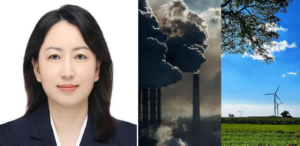Indian media “lacks understanding” over Dalai Lama’s reincarnation: China embassy

Indian media “lacks understanding” over Dalai Lama’s reincarnation: China embassy
Chinese spokesperson also mentions “cognitive deficit” about China
Delhi Crown Bureau
New Delhi: Spokesperson of the Chinese embassy in New Delhi, Yu Jing on Monday (July 7) said that the Indian media lacked understanding about the reincarnation system of the Dalai Lama, and hence it made irresponsible remarks about the same.
The remarks came a day after the Tibetan spiritual leader the Dalai Lama celebrated his 90th birthday in Dharamshala, in India’s Himachal Pradesh. Even as the birthday celebrations were still on, China had strongly objected to Indian Prime Minister Narendra Modi congratulating the Dalai Lama on his 90th birthday, and to Indian ministers visiting Dharamshala for celebrations. While doing so, Beijing reiterated its stance on matters concerning Tibet (or Xizang as China calls it locally).
Taking a strong note of Modi’s congratulatory message to the Dalai Lama, Chinese Foreign Ministry spokesperson Mao Ning told reporters in Beijing that China’s position on Tibet was “consistent and well-known”.
Mao further stated that the Dalai Lama was in a political exile, and also alleged that the spiritual leader had been involved in efforts to separate Xizang under the guise of (Tibetan) religion.
Holding the fort for her country (over Dalai Lama & Tibet issues) in New Delhi, the Chinese embassy’s spokesperson Ms. Yu Jing stated that some (Indian) media had recently made some “irresponsible remarks” on the reincarnation of the Dalai Lama.
“This is largely due to a lack of understanding of the relevant issues and a cognitive deficit about China, which led to the media and the public being misled by the Dalai group’s unilateral narrative. The Dalai Lama has no authority to decide whether the reincarnation system shall continue or be abolished. As to the reincarnation of the Dalai Lama, a complete set of methods and procedures have been established over the centuries, and the religious rituals and historical conventions as well as the Chinese laws and regulations must be complied with in this process,” said Yu in a social media post.
She further said that the Indian government had made “political commitment” to China on Xizang (read Tibet)-related issues. “It is hoped that the media friends respect China’s core interests and major concerns,” added the Chinese embassy’s spokesperson.
Yu Jing, who was a part of the Indian media delegation which recently visited Xizang showing the Tibetan people’s life there, said, “We also welcome the media friends to visit Xizang, learn how Tibetan Buddhism and the reincarnation of Living Buddhas evolve in China, as well as the life of local people, and enhance understanding of the real China, including Xizang.”





